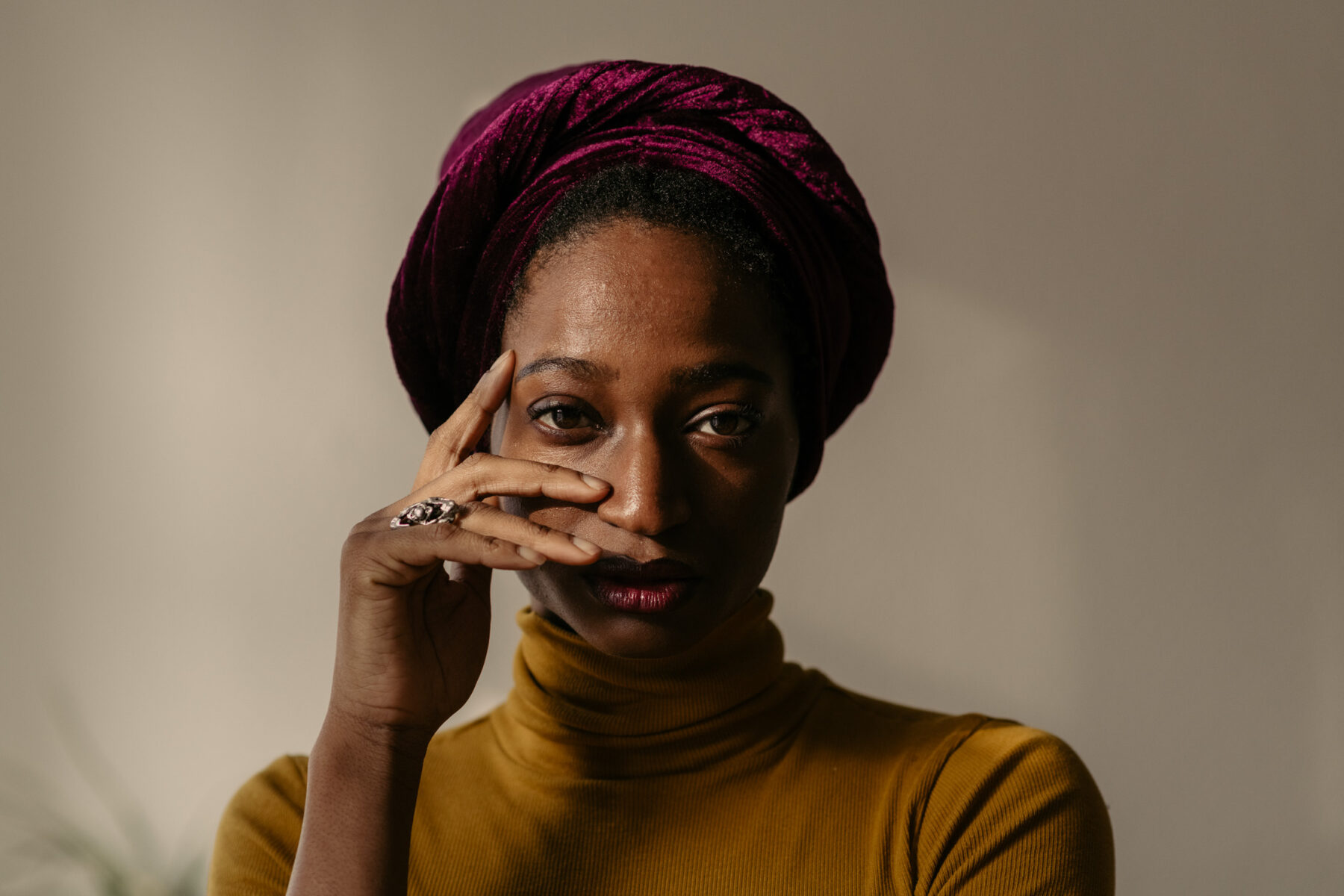Recently asked by an Instagram follower how she got into comedy, Mayowa Osinubi’s answer was as frank and witty as she is: “I just realized my life was a joke and I was the only one who could properly convey that to the public.”
Osinubi’s vita reads like anything but a joke. Besides being a stand-up comedian, she is the founder of Issa Comedy Show, Berlin’s first comedy night highlighting the voices of POC and LGBTQI+ comedians, as well as a photographer, filmmaker, model, and activist. It makes for a busy schedule: Osinubi also practices kickboxing five days a week and posts by-weekly videos on Mayowa’s World, her YouTube channel, which she uses to talk about body positivity, freeform locs, and self-love, among various other topics. “I like to look at life like I’m a sprinter; I have no ability for long-distance running whatsoever,” she says with a laugh. “I like that, though, because I feel like you still get there, you just get there first.” Slowing down? Not her forte. “I run as fast as I can until I hit a wall. When I hit the wall I’ll breathe, think, and run as fast as I can again.”
Whether online or offline, it’s impossible to ignore Osinubi’s energy. In person, she’s as vibrant as her internet presence indicates. Wearing a mustard turtleneck with color-matching cotton pants and her locs tied back in a magenta scarf, she speaks quickly and gestures wildly. “I just have so many things I want to talk about that my friends can’t always listen to, so I took them to YouTube, then to modeling, then to the stage,” she says.
Osinubi’s dedication and discipline come down to the fact that she genuinely cares about the people around her: “The future of everything lies in the community; I have more faith in my community than I have in political figures.” She’s also convinced that change has to start where you are. Of course, it doesn’t happen on a whim. In Osinubi’s case, it was all part of a process that took her from Atlanta to Berlin, gained her a fellowship with the Alexander von Humboldt Foundation, and led to the launch of Issa Comedy. The latter not only provides a platform to voices that remain underrepresented in the comedy world, but allows Osinubi to educate people on things that even she was previously unaware of.
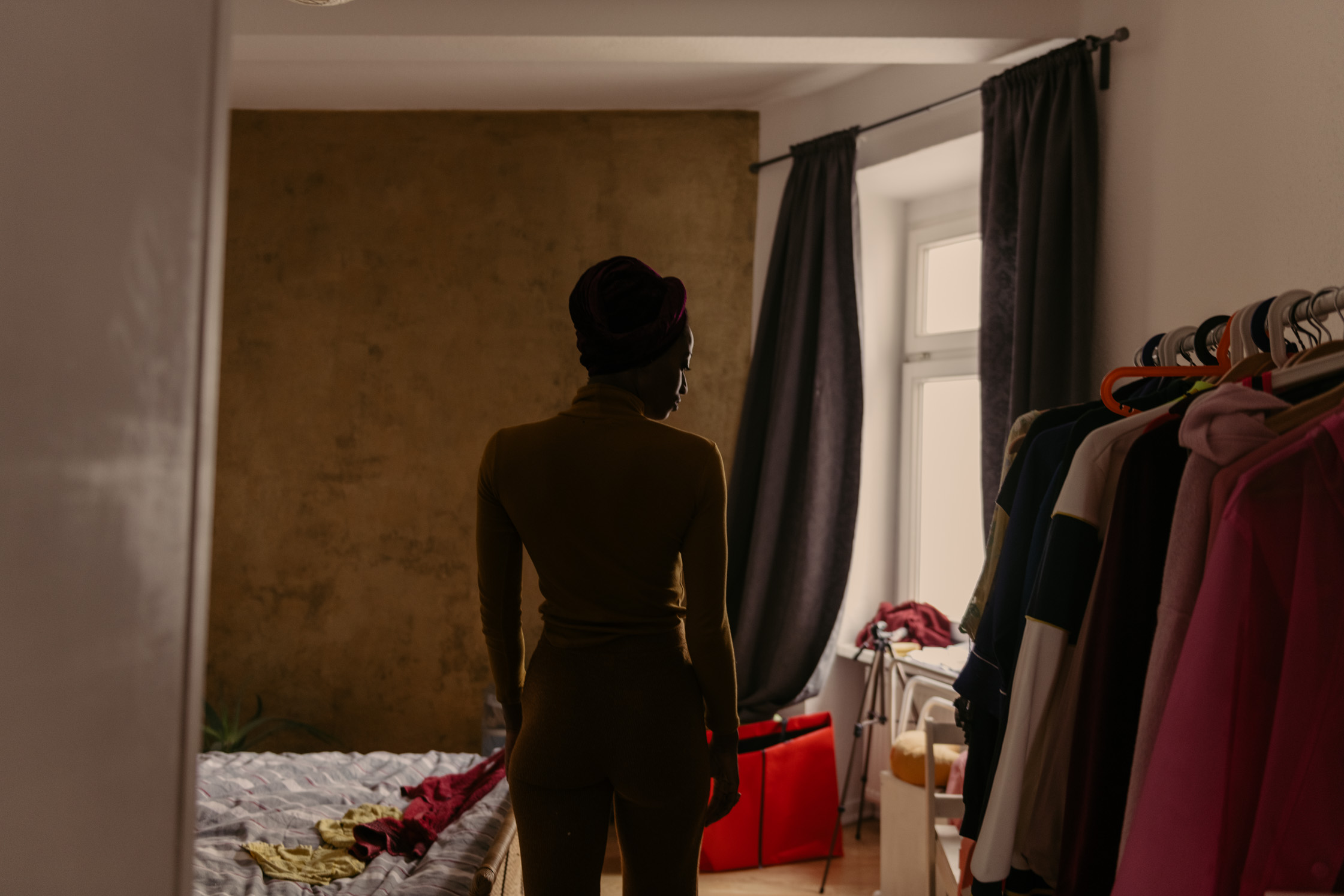
-
Your Instagram handle is Mayowa The Renegade. What does the term mean to you?
A renegade is someone who goes against the system or is trying to find the truth in themselves within that system. I do what I feel is right regardless of the flow of what others are telling me to do. It reminds me to make sure I’m certain with my decisions—decisions that will not be mainstream.
-
You only started doing stand-up comedy about a year and a half ago. Tell us about your very first time on stage.
I realized it was where I was supposed to be from the very beginning. It was the safest I had ever felt. It was so therapeutic. Somehow being with people just makes me feel comfortable. I feel safer on stage than I do on the streets.
-
You seem to have always had a very distinct voice.
I was very obedient and disciplined [when I was growing up]. I cared a lot about what people around me thought. But because I was so obedient in some ways I knew that I had to create my own voice—I could have easily just become the voices around me. I think it has always been a part of me, but it was something I had to train.
-
How has that changed with time?
Only more recently I decided to be more cohesive and more honest. I think that being real with all things that you do, even when it doesn’t make any sense, is a truth that resonates with people.
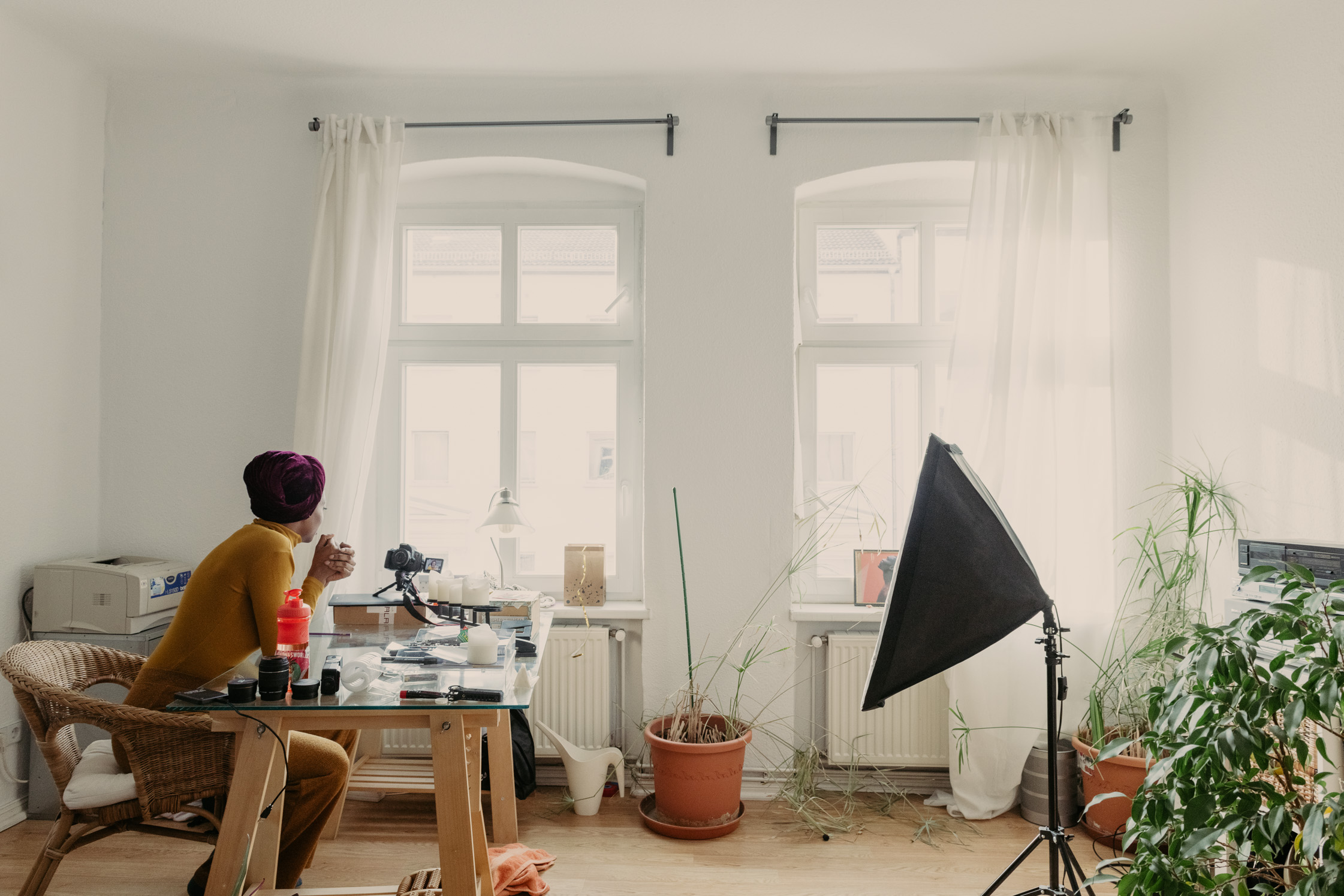
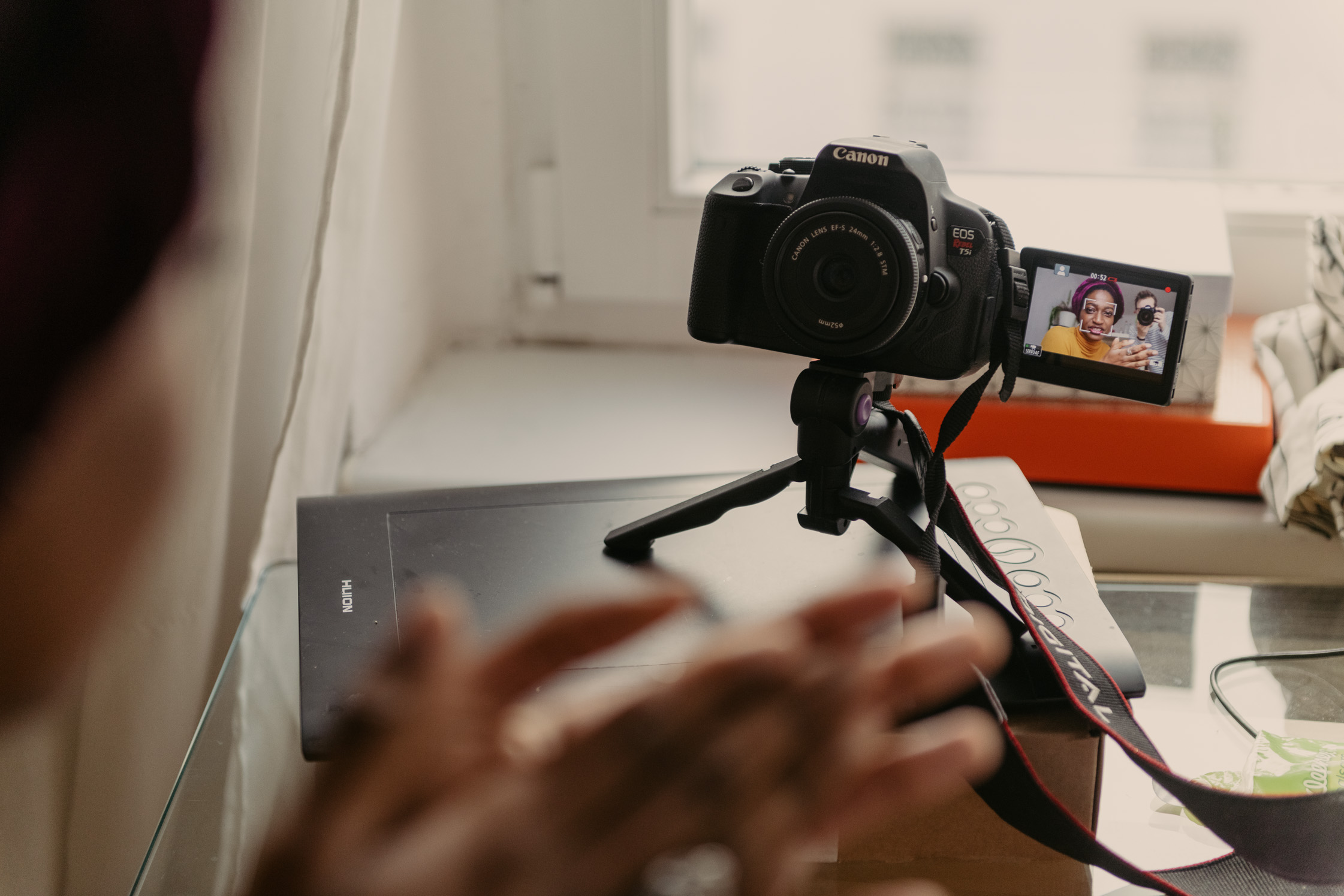
-
How do you translate that truth into your acts? What do you talk about?
My life and my day; about being in Germany and trying to integrate. Since being in Germany there are parts of me that have really flourished that didn’t flourish in Atlanta. It’s important to know that if you come from a place where you don’t feel like you’re appreciated, you can always leave. That has always been a core message to myself. When you’re able to leave you ought to create that happiness wherever you go. That’s another topic I address. I also talk a lot about how I grew up and where I grew up to let people see how I see the world. I talk about feminism, but I never say I talk about feminism; just about being able to do what you want to do without being held back.
-
How does that reflect on your notion of comedy?
I think the role of a comedian is to reflect society while reflecting yourself. The role that I am playing in this system and my individual identity in this system. To me, comedy is to bring joy; I don’t think about comedy as laughs, but as joy, because joy has a lot of variety. If I think of how I bring joy to people I think I have more of an ability to express myself in a different range.
-
Besides expressing yourself, what do you get out of performing?
When you can make someone laugh, you really understand a part of them. To me, in order to get the culture in Germany, I wanna find out what they find funny. That helps educate me. To see what they like and to ask myself: How do I put myself in this system? How can I help push and make an impact in this world?
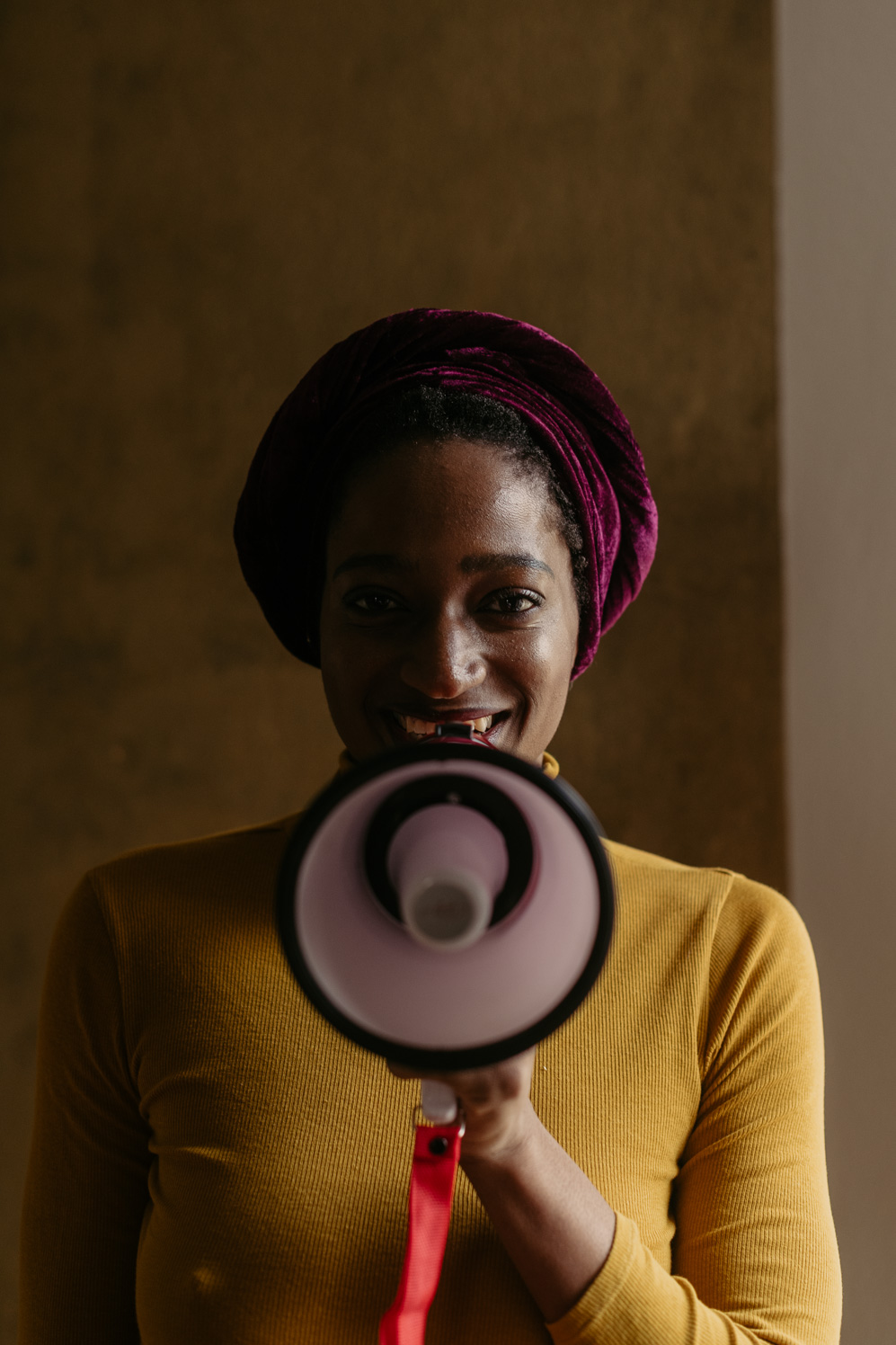
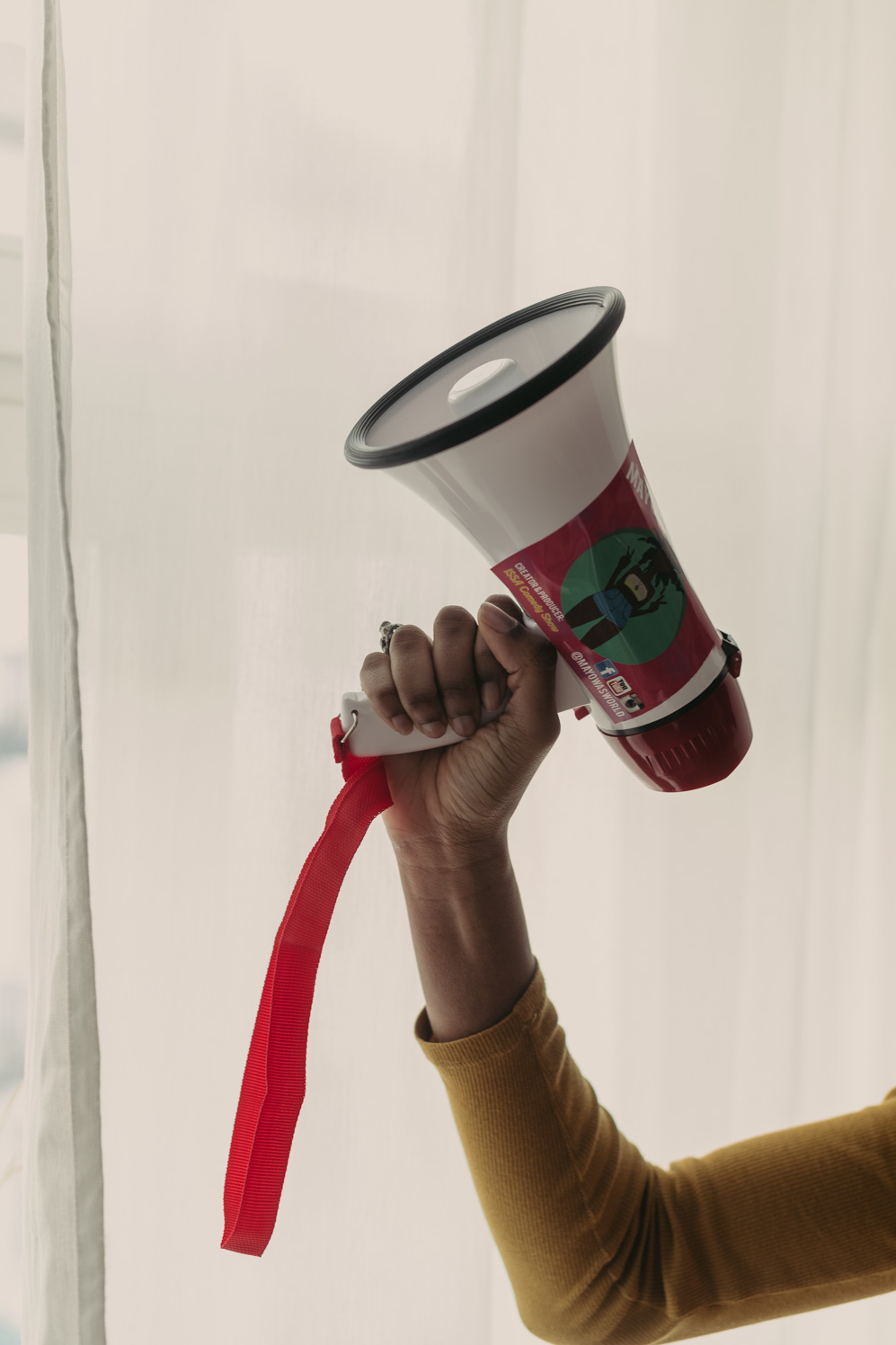
-
What do you want people to gain from coming to your show?
At my show, people are allowed to be wild. I set the template by being wild and extra and that sends the message to everyone else that they can be just as extra. I’m surprised when people out wild me in my own shows. People wear crazy outfits. I’m like, are you trying to steal my show? It’s amazing; I want it to be a really open space where you can express these different styles. I want people to be pushed a bit. And just learn about different perspectives.
-
You typically book three to four comedians and one drag performer. What makes them special?
I like to see where their frame of mind is at. I really want someone who I know can push you in a very different way. Every comedian is different. I love when they are honest. Take when I booked French comedian Arielle Souma. She talks a lot about being a big woman and how she exists in this world. It was so eye-opening to me. I realized I had never seen a big woman talk about her life on stage. Her perspective, how she feels, and how she says there’s nothing wrong in calling her big or fat. I remember how I was like: fuck, this is so mind-blowing. She was so empowered in herself that it was uplifting. Or another comedian who is gender non-binary; they talk about their experiences. I thought, fuck I never think about going to the bathroom. They do it in a fun way that they bring along to laugh at the stupidity.
-
How do you communicate that commitment to giving more room to equality in the industry?
I try not to use the word equality but the word equity. With the word equality people might think it’s half and half and that’s never what equality really is. Equity is studying the system and what has been going on previously. It’s about finding the balance, and balance can only be found when you study what has previously existed. I know so many people that go through a crazy amount of shit and they are the funniest people I know; they are not really going to be encouraged to get on stage because the comedy environment is rougher for certain people than it is for others.
-
Did you ever encounter any challenges?
Being a comedian in a male-dominated industry can be tough for me, but I have so much privilege that allows me to exist in these spaces. But there are people that are way funnier than I am who have way less privilege than me, and they aren’t encouraged to get on stage.
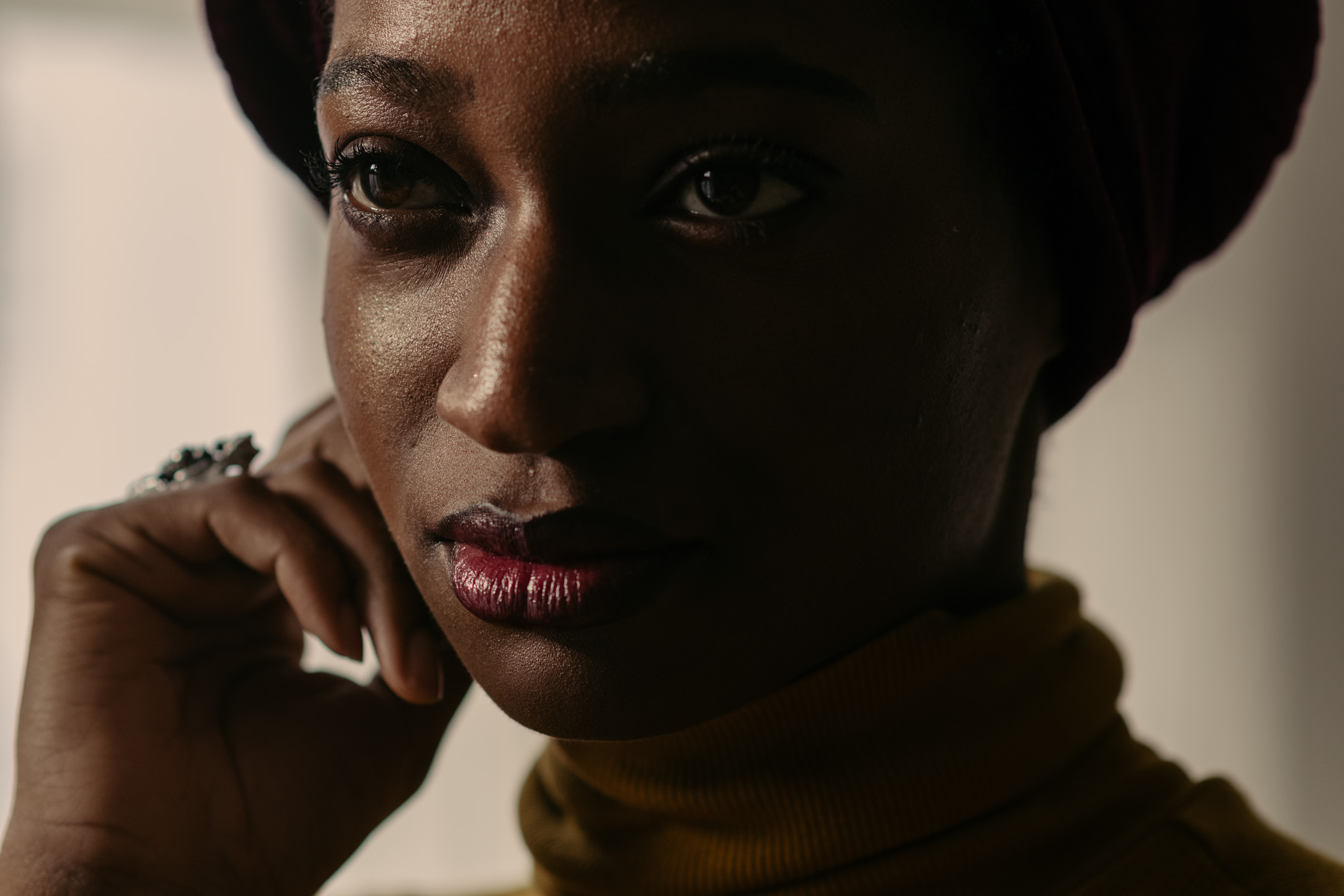
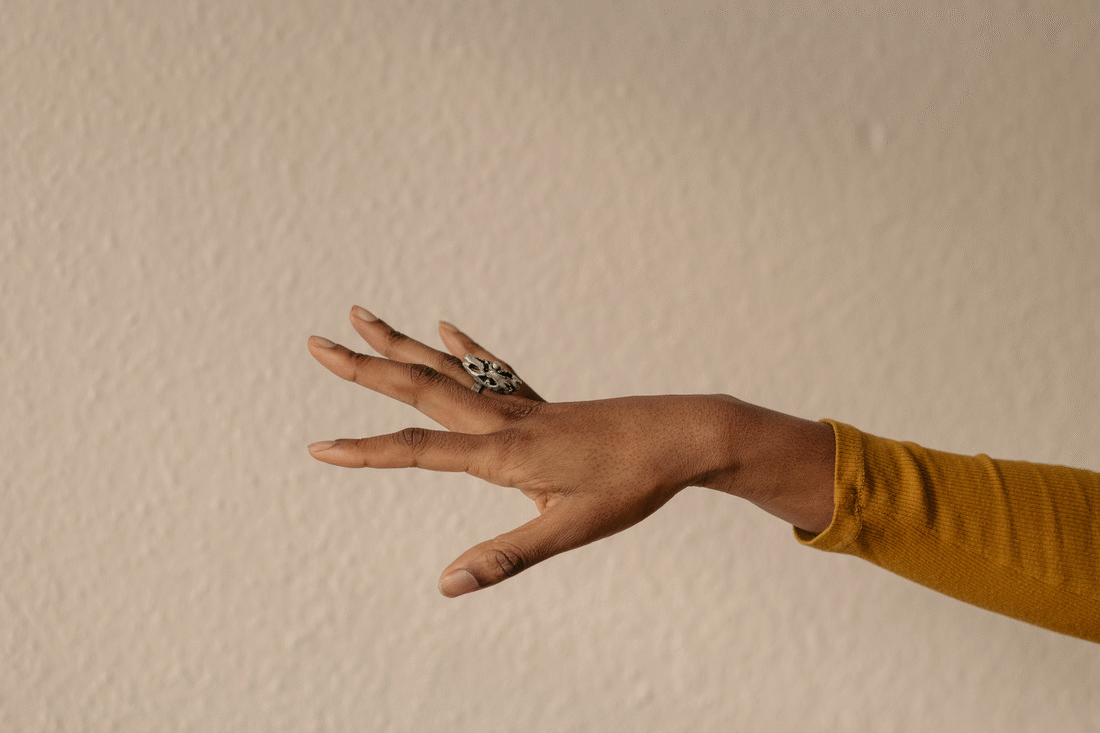
-
A lot of people seem to think that comedy has become too politically correct. What are your thoughts on that argument?
I believe the younger generation is tired of comedy that makes fun of someone else. This generation is generally more curious about different people’s experiences. To me, this is the future of comedy. We are not calling out for people being different, but saying, “This is what we have in common, this is what we can build together.”
I think some other comedians would say that this is ruining comedy, because it’s making it about something political. But to believe that you can remove the politics from a person is just ignorant. Just because you don’t have to state what kind of identity you are doesn’t mean that politics don’t exist, it just means that you’re privileged enough to not have to say what kind of identity you are. And I don’t even necessarily think that comedy has to be everybody talking about what their oppression is at all.
-
Do you think comedy as an art form has become more socially conscious?
People who are oppressed in society often avoid going to comedy shows because they don’t want to pay money to get their asses roasted on stage. I think the people who are getting made fun of actually deserve to laugh the most. That’s the comedy I want to make.
-
What do you think holds back comedians?
My problem with a lot of comedians is that they don’t allow themselves to become vulnerable, to talk about very embarrassing moments because they’re afraid to not hit the jokes. But by allowing that intense vulnerability in comedy everything becomes richer. It’s an emotional experience.
-
Is there such a thing as a ‘universally funny’ joke?
I believe that I am on the journey to define that answer for myself. Coming from where I come from and doing comedy here in Germany, I notice such a difference as to what we find funny. But I can still make Germans laugh which means there is a thread connecting these two places.
I think what is universally funny is honesty; [to be universally funny] you really have to study people and see if there are traits that all humans contain. And I think all humans contain the ability to love and to feel anger, enjoyment, empowerment, and enlightenment.
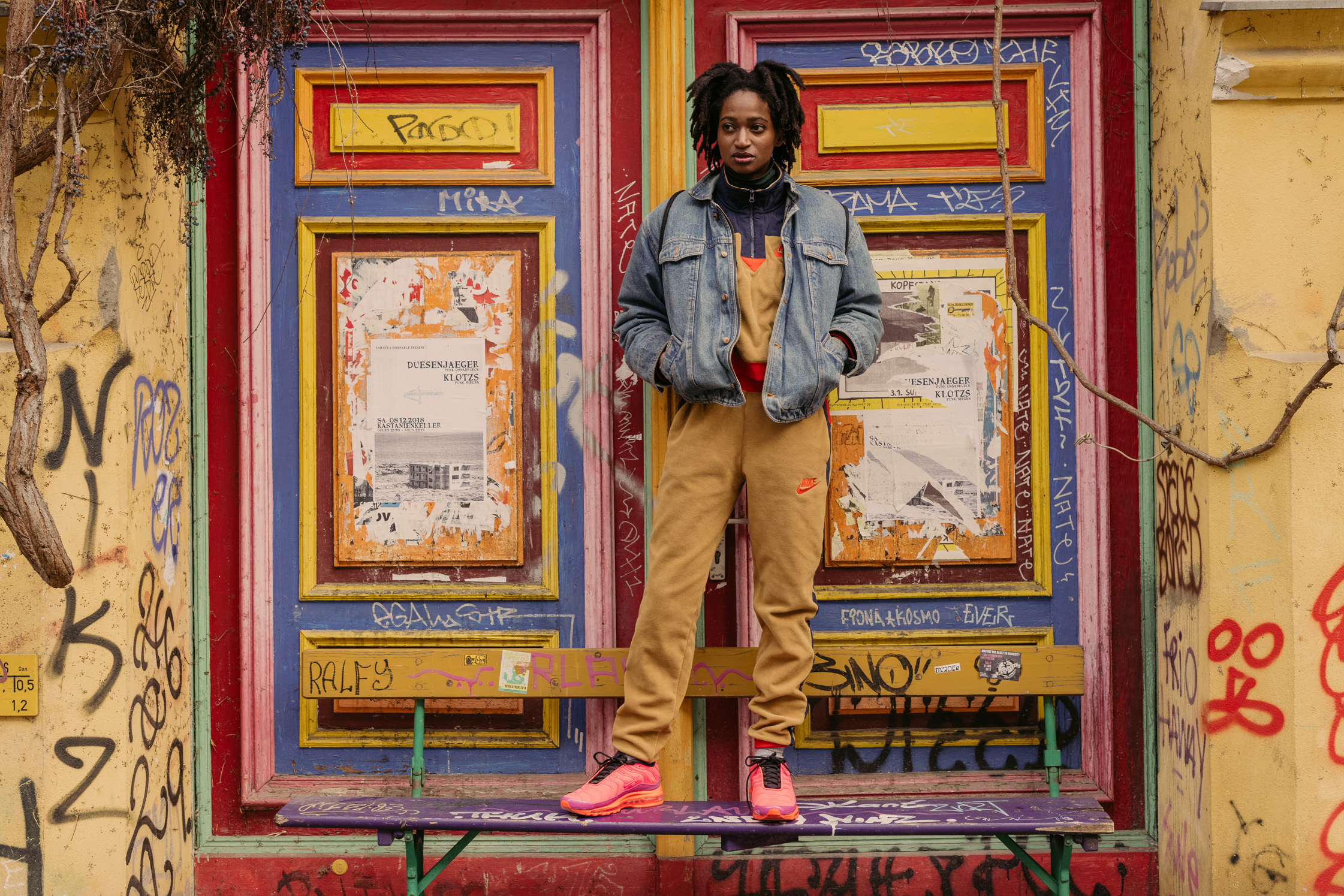
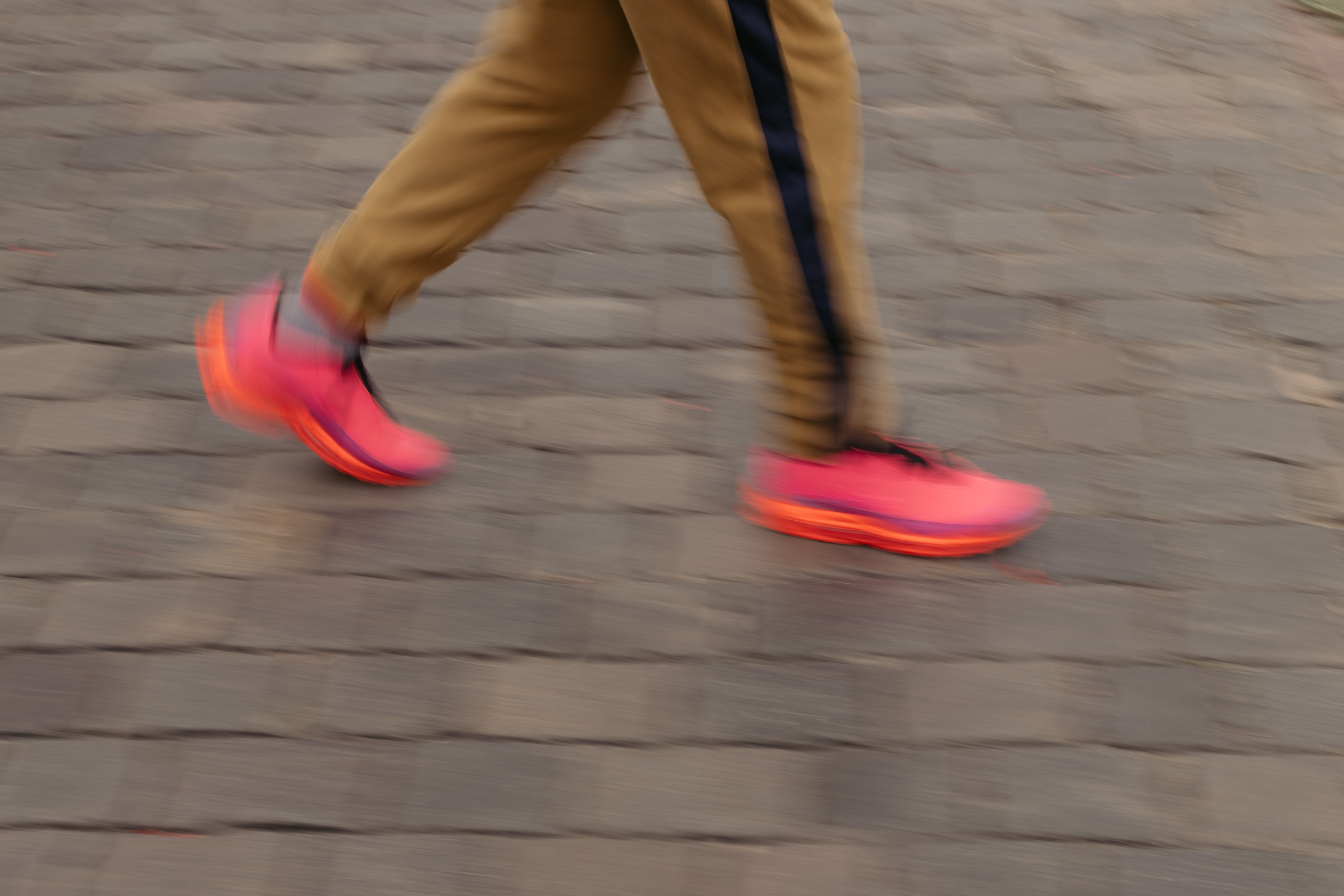
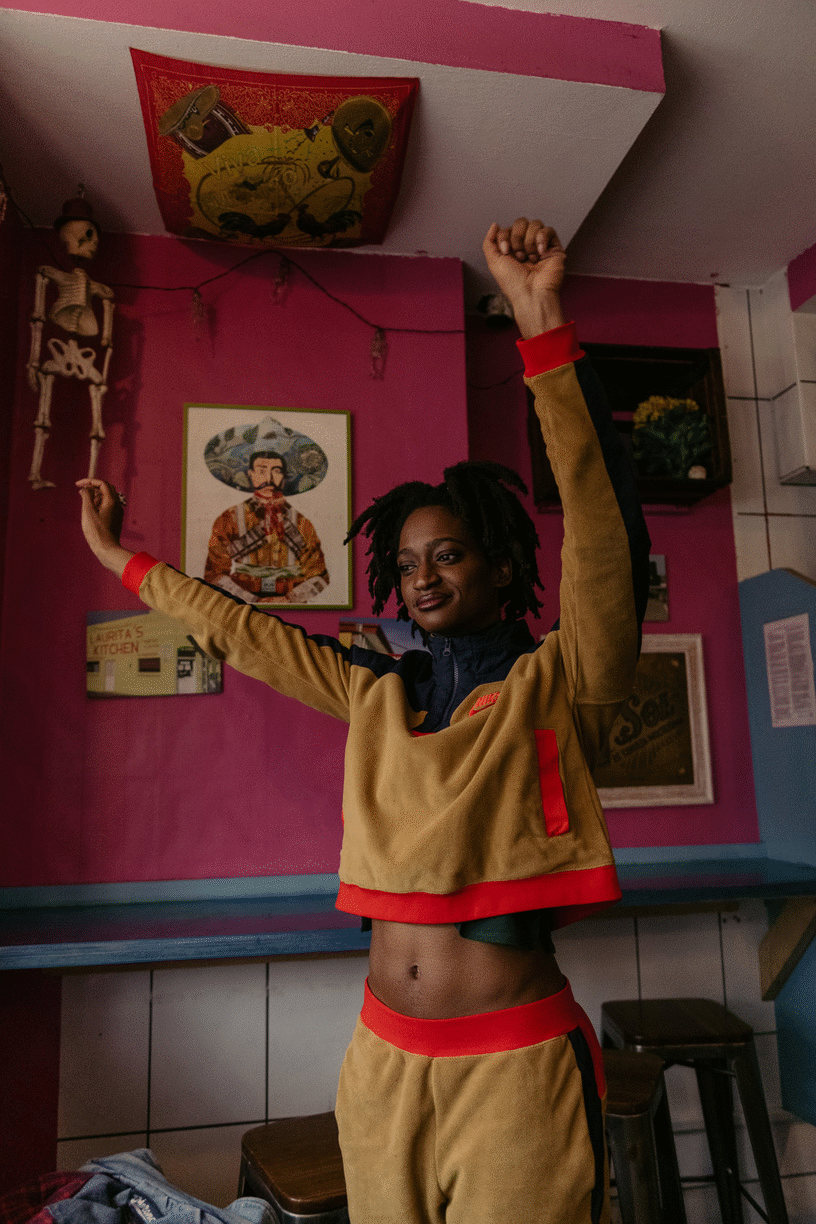
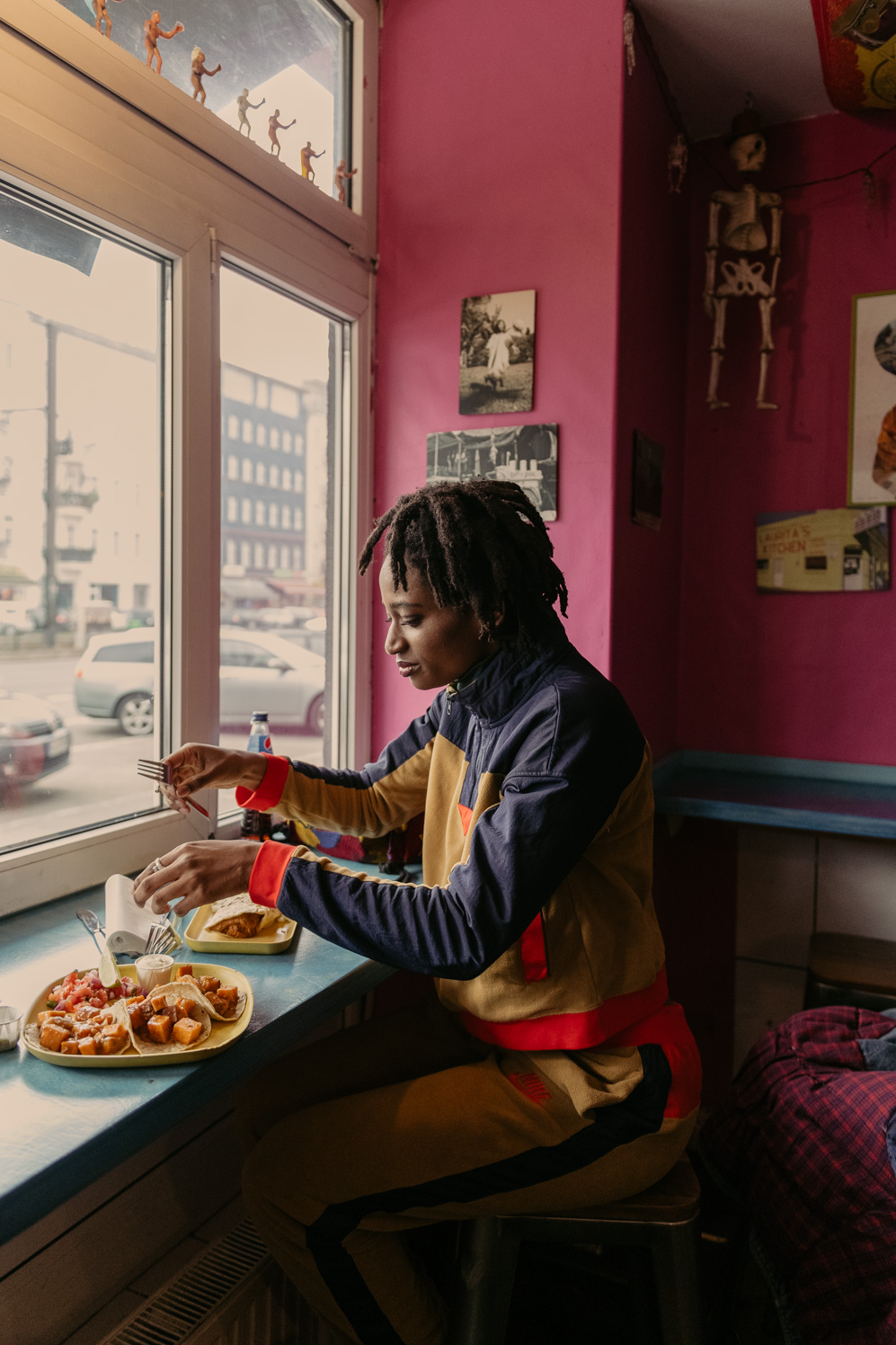
Mayowa Osinubi is the founder of ISSA Comedy, a monthly comedy night that highlights the voices of people of color as well as LGBTQI+ comedians. The next show will take place this Friday at Musik & Frieden in Berlin-Kreuzberg. Sign up here.
Osinubi is also a photographer and the producer of Acting White, a documentary film that confronts what it means to ‘act white’ in the context of contemporary America.
Text: Ann-Christin Schubert
Photography: Robert Rieger
